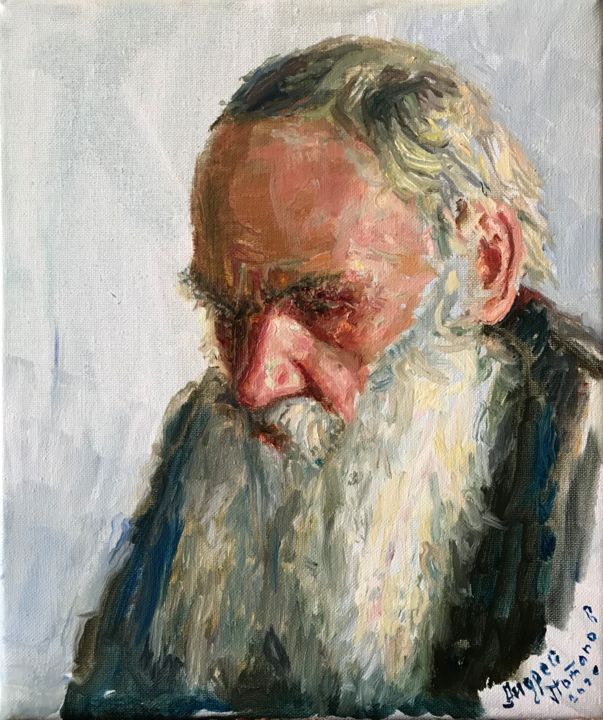Leo Tolstoy Archive
Written: 1887
Source: Original Text from Gutenberg.org
Transcription/Markup: Andy Carloff
Online Source: RevoltLib.com; 2021

A half-hour passed by. The baby began to cry. Akulína took him, and gave him the breast. She was no longer weeping; but resting her thin, tear-stained face on her hand, she fixed her eyes on the flickering candle, and asked herself why she had got married, and why so many soldiers were needed, and, still more, how she might pay back the joiner's wife.
Her husband's steps were heard; she wiped away the traces of the tears, and got up to light his way. Polikéï came in with an air of triumph, threw his hat on the bed, drew a long breath, and began to take off his clothes.
"Well, what was it? why did she call you?"
"Hmm! a good reason! Polikushka is the lowest of men; but, when there is something needed, who is called on? Polikushka!"
"What is it?"
Polikéï did not make haste to reply: he smoked his pipe, and kept spitting.
"She wants me to go to the merchant, and get her money."
"Get her money!" repeated Akulína.
Polikéï grinned and nodded.
"How well she knows how to talk! 'You had,' says she, 'the reputation of being untrustworthy, but I have more faith in you than in any one else. [Polikéï raised his voice so that his neighbors might hear.]* 'You promised me to reform,' says she, 'and here is the first proof that I believe in you: go,' says she, 'to the merchant, get some money for me, and bring it back.' And says I, 'My lady,' says I, 'we be all your slaves, and it be our duty to serve you as faithfully as we serve God, and so I feel that I can do every thing for your well-being, because I owe it to you, and I could not refuse no service; so, whatever you order, that I will perform, because I be your slave.' [He again smiled with that peculiar smile of a man who is weak, but good-natured, and has been guilty of some sin.] 'And so,' says she, 'will you do this faithfully? Do you understand,' says she, 'that your fate depends upon this?'—'How can I help comprehending that I can do it? People may slander me, and any one may fall into sin; but it would be a moral impossibility for me do any thing contrary to your interest, nor even think of it.' So, you see, I talked to her till my lady was just as soft as wax. 'You will be,' says she, 'my principal man.' [He was quiet for a moment, and again the same smile played over his face.] I know very well how to talk with her. When I used to go on leave of absence, I got practice in talking. Only let me talk with 'em, I make 'em just like silk."
"Much money?" asked Akulína.
"Fifteen hundred rubles," replied Polikéï carelessly.
She shook her head.
"When do you go?"
"To-morrow, she said. 'Take a horse,' says she, 'any one you wish, come to the office, and God be with you.'"
"Glory to thee, O Lord!" exclaimed Akulína, getting up and crossing herself. "God be thy help, Ilyitch," she added in a whisper, so as no* t to be heard beyond the partition, and holding him by the sleeve of his shirt. "Ilyitch, heed what I say; I will pray Christ the Lord, that you go in safety. Kiss the cross, that you will not take a drop into your mouth."
"But of course I am not going to drink, when I have all that money with me!" he said with a snort. "Some one was playing there on the piano,—handsomely, my!" he added, after a silence breaking into a laugh. "It must have been the young lady. I was standing right before her, near the shiffonere—that is, before her ladyship; but the young lady was there behind the door, pounding away. She bangs and she bangs so harmoniously—like—She just makes it sing, I tell you! I should like to play a little, that's a fact. I'd have liked to gone in just for once. I am just right for such things. To-morrow give me a clean shirt."
And they went to bed happy.